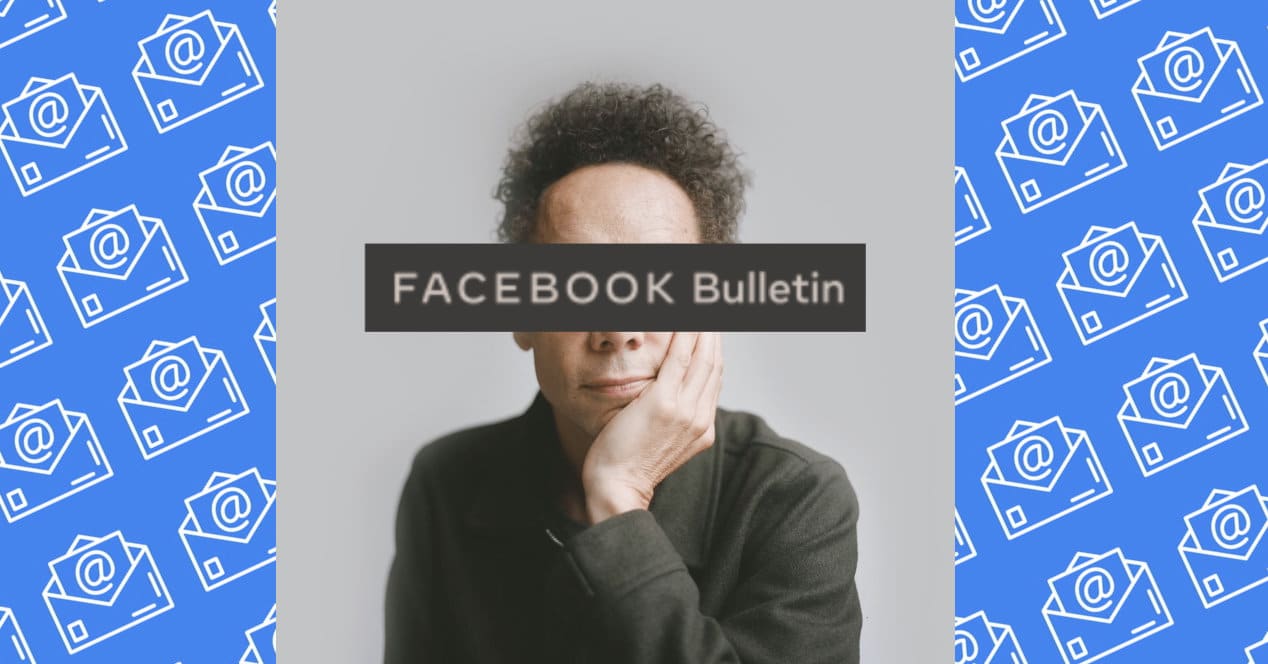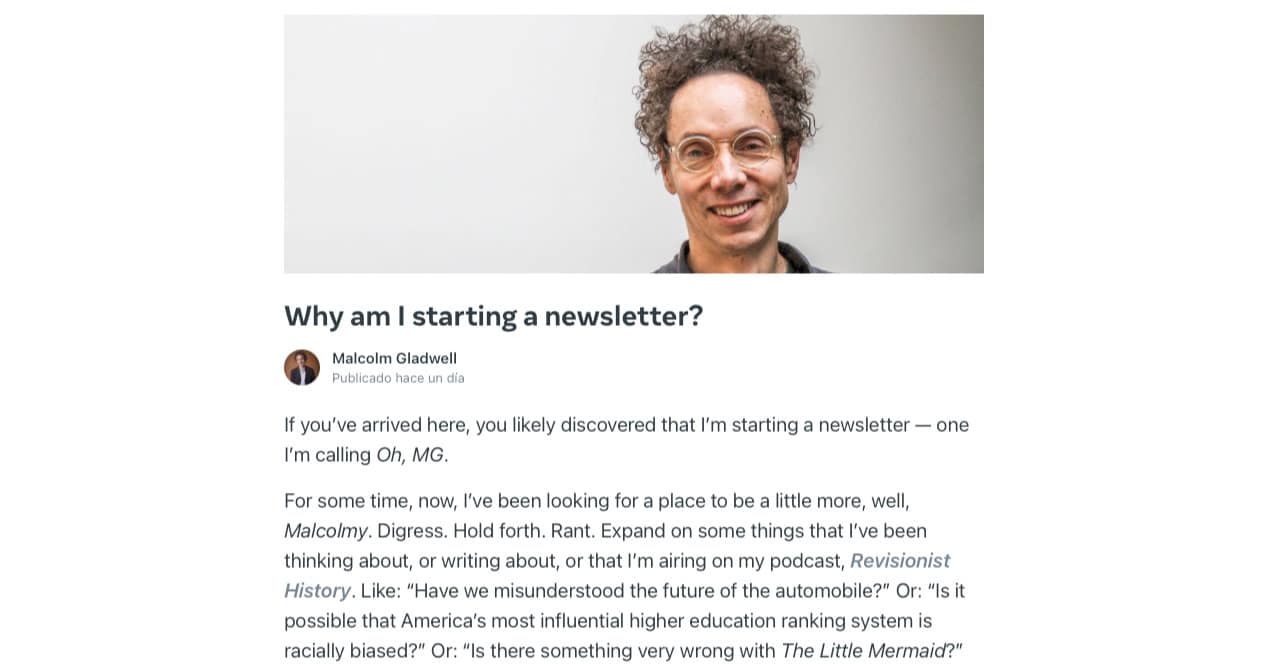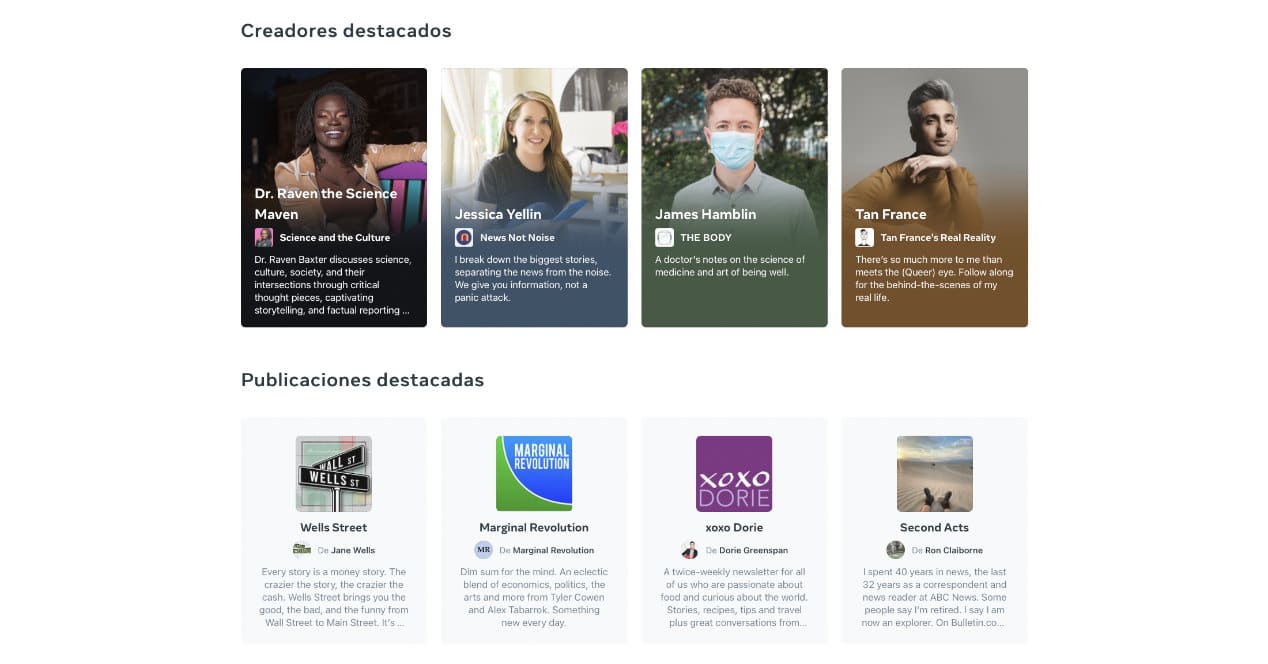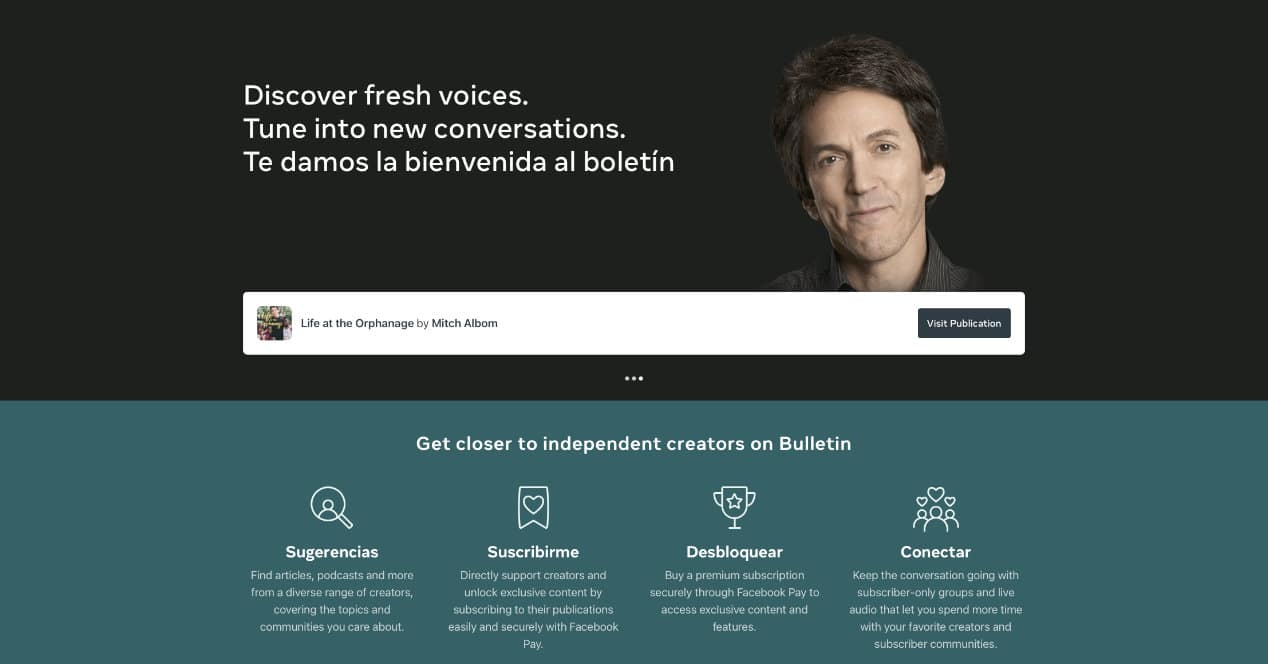
The new Facebook platform is called French Newsletter And it is the way in which Marc Zuckerberg's company fully enters a market that has been in full swing for months and that seems to continue to grow much more if we see the latest movements. We are referring to the newsletter or news bulletins and especially those that seek to achieve monetization by making the leap to the subscription payment model. So we are going to tell you everything it offers and how this new option is positioned compared to others already available.
What is Facebook Bulletin

To fully understand what this latest move by Facebook means, you first need to know what Bulletin is, although surely many explanations are not needed either, since the concept is something that most users will already know due to the popularity that it has been gaining in recent months.
Bulletin is a newsletter service or newsletters where any user can create their own and thus be able to share everything that interests them and believes that it could also be attractive to other users. In this way, this is a platform aimed at all types of users, not only independent writers, new, specialized, established or belonging to a large company.
However, it is true that there will be a series of profiles that will be able to take much more advantage of the proposal due to the additional options it will offer. Like, for example, the possibility of monetizing the content in a fairly simple way. Something that is not new either because alternatives such as Substack or Revue have already been offered for a long time. Of course, being in Marc Zuckerberg's company has its advantages.
The advantages of Bulletin
Bulletin, the new Facebook newsletter service, does not reach this new market first, but it does have all the machinery available to Zuckerberg to make its launch relevant and not a simple proposal that is forgotten after a few weeks . Still, you don't have to sell the bear skin so quickly either. But that it has a series of interesting advantages, no one doubts it.
The first of these and the most obvious is the advantage of be within the ecosystem of Facebook products. This means that, as you can imagine, users who subscribe to a newsletter will not only be able to receive them through their inbox for the email account with which they registered. They will also be able to consult a website where all the deliveries will be published and through the other networks and platforms of the company.
Thanks to this integration for the content creators, it will be much easier to be able to grow user community. Well, although the option to share on Twitter, Instagram, etc. exists on other platforms, if many of these networks belong to the owner of the newsletter platform itself, all the better.
The second is related to the payment in those newsletters that go to the subscription model. They will not have to configure anything weird, just activate the option Facebook Pay and ready. This also adds the advantage of reducing the friction that many users feel when they have to register with another online payment system to access content that potentially interests them.
And finally there is the security that it is Facebook who is behind it. We are not saying this because of the use of the data that the company may or may not make, that is another controversy that never ends, but because of the financial support that ensures that the platform will not fall in a matter of months because they no longer have anyone to help them. invest as might be the case with many startups.
What Facebook gains with Bulletin

As we have said, Bulletin is a service of newsletter with paid subscription option. These subscriptions will depend on the author himself, he will be the one who sets the price based on what he deems appropriate due to its quality, contributions that he can make, etc.
However, Facebook at the moment does not take anything from each of these subscriptions. Does not receive any income (0% commission), so the question really is whether or not this will still be the case when the final version is released. Because at the moment it's in beta, which also explains why there are basically only writers from the United States and not from other countries. Or yes, but only two, a very small number.
When the final version is released and anyone can create their newsletter, we'll see what happens. Although you will have to be careful, because Substack only takes 10% of the subscription and Revue 5%. So much shouldn't go up. Moreover, it should not go beyond that 5%, which would be more than symbolic.
How to sign up for Facebook Bulletin
Bulletin is currently only available to creators from the United States and those two foreigners mentioned above. So for now no one can really create an account to start posting. What can be done is start reading the content that users who are currently registered with the service already have to offer.
Facebook doing Facebook

Facebook's strategy with Bulletin does not seem to surprise anyone. Like they've done in the past, if they see something that works and they can't buy it for whatever reason, they just throw in their own clone, which usually has a much better chance of eating their opponent than the other way around.
The latter was already demonstrated when I copy the Snapchat stories on Instagram. We all clearly saw that they were cheating. Most of us let it go and now it would be difficult for the vast majority to tell you which shower option is copied by the social network. Something that will surely happen again here.
However, it is what it is, these are things that are not surprising and those who copy only have to continue demonstrating that they are more original and will always have better benefits, users, interest, etc.